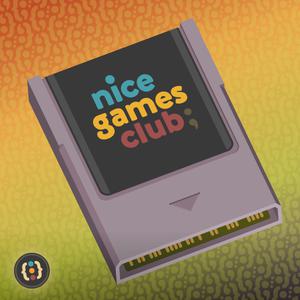
Nice Games Club - a gamedev podcast!
Ellen, Stephen, and Mark
The podcast where nice gamedevs talk gaming and game development. Nice!
- Sega Consoles
Attention Sega nerds! This Nice Bonus episode is for you!
During our episode on 90's consoles Mark found out there were so many obscure Sega accessories that they couldn't fit in the episode and deserved their very own spotlight. Please enjoy this Nice Bonus short episode all about them!
Sega Consoles
- "The lensing effect of the window." Theming vs. Aesthetics; Parries [Nice Replay]#361"The lensing effect of the window."Roundtable2024.08.22
It’s hot in the clubhouse and hot in Ellen’s greenhouse this week, so your hosts are eager to crunch through some discussion. Ellen introduces the concept of the MDA framework, and the differences between Theming and Aesthetics, and Stephen comes to a major conclusion about parrying.
Theming vs. Aesthetics
0:06:40Ellen Burns-JohnsonGame DesignThe MDA Framework - WikipediaEllen promised Dictionary.com definitions, so here you go:Aesthetics - Dictionary.comTheme - Dictionary.comWe talked about theming and aesthetics for a GameJam Game from a previous episodeThe Bike BoomAlien Isolation Themes explored n : Demystifying the Terror of Alien Isolation - Andy Robertson, WiredParries
0:28:56Stephen McGregorGame DesignStephen's list of why parries are so popular: 1) A way to reward mastery or paying attention 2) Rewards participation 3) An appreciable way to consider mastering the game The different variations of Parrying 1) Just Dodges 2) Traditional Parrying (miss = block) 3) Dynamic Parrying release parrying 4) Alternate button (paper mario parrying) EVO Moment 37 - Wikipedia30 January 2025, 12:00 pm - Tutorialization with Puzzles (with Luke Spierewka) [Nice Replay]#371Tutorialization with PuzzlesInterview2024.11.01
"Tutorials shouldn’t feel like tutorials!" Like most aspects of game design, it's an easy concept to summarize but a difficult one to pull off. Luke Spierewka and the team at Afterburn Games have mastered it, using their charming approach in successful titles like Golf Peaks and Railbound. Come learn the arcane secrets of the puzzle game tutorial! Also featuring some great room sound.
Afterburn Games (studio)Tutorialization with Puzzles
Game DesignOn crafting Railbound, a cozy track-bending puzzle game - Evgeny Obedkov, Game World ObserverDynablaster (game) - WikipediaLuke Spierewka
GuestLuke is a game designer, programmer, and jack of all trades. He makes games, organizes events, gives talks (and interviews) and does "lots of other stuff." He's worked on many titles, including Railbound, Golf Peaks, Gwent, and SUPERHOT. Learn more about Luke at http://spierek.net/
23 January 2025, 12:00 pm - "A slow meat computer" King Making; Thinky Bits (Off-Screen Gameplay) [Nice Replay]#347"A slow meat computer"Roundtable2024.05.16
In the episode, Mark, Ellen, and Stephen talk local events, including (don’t worry everyone’s fine) a fire in the clubhouse’s building, construction, and the games they are playing, so if you are just here for the topics, go ahead and skip to minute 23. Ellen learns about King Making, Stephen humble brags about being good at Smash Brothers, and Dale plays kingmaker in naming the second topic!
News
Masu Fire - Paul Walsh, Star TribuneBus Rapid Transit (BRT) - Jared Brey, GoverningWhat We are Playing
Dragon's Dogma 2 - WikipediaPrincess Peach Showtime NPR Review - Rakiesha Chase-Jackson, NPRKing Making
0:23:00Stephen McGregorGame DesignStephen has been QA testing Harvest Kingdom - Ben Hunder, DiscordThe YouTube video that Stephen references - Distraction Makers, YouTubeKingmaking in Root (Leder Games) video - Cole Wehrle, GDCSmallworld - Board Game GeekThinky Bits (Off-Screen Gameplay)
0:49:17Ellen Burns-JohnsonGame DesignGames discussed
Return of the Obra DinSpirit Island - Board Game GeekDeath Drives a Bus - itch.io16 January 2025, 12:00 pm - Nice Games Jam: "Eddies" [Nice Replay]#338EddiesNice Games Jam2024.03.11
The clubhouse is caffeinated and ready to jam, game jam that is.
The clubhouse is giving a prompt where air movement is the main mechanism of action and they create a physical game for a tabletop (in the style of 'Hungry Hungry Hippos'). The notoriously unpredictable 'Eddies' of air movement gives this game it's name. The main challenge for the team - a more sanitary air blower mechanism than drinking straws: a tiny bellows, small whoopie cushions, slide whistles, or party noisemakers?
Prompt"Create a game where the main mechanics are fans and or leaf blowers."Game typeTabletop gamePlayer count2 - 8MaterialsBlowing mechanisms - one per player (drinking straw in playtest)
A bunch of small peices of junk
A container for the small peices of junk
Playing feild (box, 8 sided)
Rule Card Deck
SetupThis is a game about some young teenagers who find some leaf blowers in their (octagonal) cul-du-sac and make a game with them.
Each player will select a side of the playing field (the box) as their home territory. The goal of the game is to have the least amount of junk (points-wise) fall off of your side of the field.
Rule Cards:
- Separate the Rule cards into the three categories: Puff Variants, Point Variants, and Zone Variants. Shuffle the cards from each category, and pull three of each category to start each of the three rounds.Cards rule examples
- Puff: Each player has 3 puffs per turn
- Point: Each black item is worth +1 point, all other items are worth -1 point
- Zone: The windy end of your blowing mechanism may not be placed within zones 1+2 of the playing field
- Shuffle the remaining rules cards from three categories together.
- From the combined deck, deal 4 cards to each player.
- The player may look at their hand of cards
Place Junk (perform at the start of each round):
- Gather some junk and place it in a container. Typically dice and pieces from other games will make up the majority of the junk, but this may also be dodads from your junk drawer like golf pencils, nails and screws, magnets etc.
- At the beginning of each round a different player will grab a handful of junk from the container and place it in the center of the 8-sided playing area.The junk placer may not arrange the junk when placing it down. Any junk that falls off of the playing field will be returned to the container of junk.
After the junk is placed the rule for each category is revealed, by flipping over the top rule card from each of the three piles: Puff, Point, and Zone. The displayed rules are now in effect.
The player who placed the junk will go first.
Each player turn has three phases:
1. The play may put a rule card from their hand into play by stacking it on top of the exsisting rule for the category which it belongs to (puff, point, or zone). That rule is now in effect and the rule that was covered up is no longer in effect.
2. The player uses their "leaf blower" to puff the objects in on the playing field the number of times indicated by the Puff rule. They must follow any Zone rules in effect.
3. The player's turn is scored according to the rule cards in effect. The player draws back up to 4 cards in their hand.
The round ends when each player has had 5 turns.
New junk is placed in the center of the playing field, new rule cards are revealed and the next round starts.
The object of the game is to have the least scoring junk blown off your edge of the playing field. Highest scoring player (usually player closest to 0 wins), as most junk is worth negative points.
9 January 2025, 12:00 pm - Separate the Rule cards into the three categories: Puff Variants, Point Variants, and Zone Variants. Shuffle the cards from each category, and pull three of each category to start each of the three rounds.Cards rule examples
- The Intersection of Puzzle and Story (with Ron Gilbert) [Nice Replay]#354The Intersection of Puzzle and StoryInterview2024.07.05
Narrative designer and pal of the program Beth Korth fills in for Ellen as guest host this week and next!
Your nice hosts welcome famed designer Ron Gilbert (Monkey Island, Thimbleweed Park) into the clubhouse to discuss the virtues of inexperience, friction for its own sake, how it's all about story, and it's puzzles all the way down.
The Intersection of Puzzle and Story
Game DesignNarrativeProductionReturn to Monkey Island will have a hint system because the internet exists now - Joshua Rivera, PolygonVerdant Skies - SteamClassic Game Postmortem: Maniac Mansion - GDC, YouTubeThe phrase "confederacy of dunces" derives from a Jonathan Swift quote.
Examples of movies that feature a poorly-received genre twist include Serenity (2019), Remember Me (2010), and Safe Haven (2013).
Ron Gilbert
GuestOwner of Terrible Toybox, the designer/creator of Monkey Island, The Cave, Pajama Sam and the designer/co-creator of Maniac Mansion, DeathSpank and Thimbleweed Park. Co-designer of Return to Monkey Island.External linkMastodon - @[email protected]Blog - Grumpy GamerStudio - Terrible Toybox2 January 2025, 12:00 pm - "The super-powerful beam or whatever." Code Libraries; Game Overs [Nice Replay]#353"The super-powerful beam or whatever."Roundtable2024.06.27
This week, your nice hosts talk about code that isn't yours and ask about the natural conclusion of the narrative. Mark is handy, Ellen kinda wants to add a note, and Stephen is grounded.
It looked so easy in the brochure, but the brochure lied - Antony Ingram, HagertyCode Libraries
0:07:41Mark LaCroixProductionProgrammingToolsBest practices for writing code comments - Ellen Spertus, Stack Overflow BlogDeclare namespaces to organize types - Microsoft LearnYour nice hosts discussed licensing in a previous episode:"What's a little grand larceny?"Game Overs
Stephen McGregorGame DesignNarrativeAlternatives to the Game Over screen - Game DeveloperWe didn't mention it in the episode for some reason, but our "Metroidvania-lite" game Widget Satchel had no deaths, game overs, or failure states.
27 December 2024, 7:46 pm - Nicest of 2024
It's a cheery and bright episode to get you through the dark cold days of winter! ☃️ Your hosts (plus guest Joanna May) wrap up 2024 with a readout of their nicest things from the year—nicest games, nicest accomplishments, and nicest procrastinations. Plus, plans and projects for 2025, some soft resolutions, and a review of some exciting upcoming titles you're likely to see hit various storefronts in the next calendar year. A happy year's end to all!
Cover image credit goes to Animal Crossing World.
This year's selection of Nice Replays start next week. See you in 2025!
2024 Accomplishments
Mark
- Founded a 501(c)(3) organization, Nice Games Alliance.
- Got a new job, on a still unannounced game.
- Renewed the lease on the Noble Robot office
Stephen
- I made two movies! (Or at least I will have by the end of the year)
- Immense progress on Future Club game
Ellen
- My RSV game won multiple industry awards <3
- Hired Lydia
- Running out of plant room
Joanna
- Solved generalized serialization
- Palette generation too
- Lots of iterative things that were worked on last year
2024 "Nicest" Games
This is not a “best of 2024” or even a definitive list of our favorites. It’s just a few games we want to be nice to.
- Ellen
- We Were Here series
- Bonza
- Mark
- Astro Bot
- Stephen
- Dragon's Dogma II
- UFO 50
- Puzzmo
- Joanna
- Helldivers II
- Breath of the Wild
2025 Most Anticipated Games
- Ellen
- Metroid Prime 4: Beyond
- Winter Burrow
- FragPunk
- Borderlands 4
- Rift of the Necrodancer...???
- Lunar: Remastered Collection (for Eric)
- Mark
- Civilization VII
- Star Trek Ascendancy: The Final Frontier (the Gorn!)
- The Switch 2
- Stephen
- Dragon Dogma II DLC (I’m cheating I know)
- Civilization VII
- Honestly probably Switch 2 stuff, too
- Joanna
- Paralives
- Paralives
2025 Resolutions
- Ellen: Finally put together a portfolio site!
- Mark:
- Dreamsettler, again!
- Unannounced project
- Release Operators!
- Get Nice Games Alliance some sponsors/donations!
- Stephen: Play more games! Do more stuff outside of my apartment.
- Joanna: Put out a bigger better game demo!
20 December 2024, 6:02 am - Serialization (with Joanna May)
We invite Joanna May into the clubhouse to discuss serialization. We get ever so slightly closer to discovering what serialization even is with Joanna's help! We also have a little time to throw a little shade at Stephen's commenting style and brackets on their own line.
- Chickensoft
- Tibo, artist of the Chickensoft mascot.
- Eating your own dog food (Dogfooding) - Wikipedia
- Logic Blocks - Wikipedia
Serialization
ProgrammingToolsSerialization - WikipediaBinaryFormatter migration guide - gewarren, jeffhandley, terrajobst, adamsitnik, Microsoft Learn@JsonSubTypes vs. Reflections for Polymorphic Deserialization in Jackson - Ovidiu Mihai Tacu, BaeldungWhat are the advantages of just-in-time compilation versus ahead-of-time compil… - Stack OverflowIntrospection - jolexxa [Joanna], GitHubIL2CPP Overview - UnityMartha had mentioned unit tests (which Mark and Stephen still don't do) in a previous episode.“That wasn’t the angle I was going for.”Chickensoft Development Philosophy - ChickensoftJoanna May
GuestJoanna May is the creator of Chickensoft, open source tools for Godot and C# as well as a grassroots community. External linkChickensoft12 December 2024, 6:19 am
External linkChickensoft12 December 2024, 6:19 am - Nice Games Jam: "Space Mall Mystery VHS Game"
In this episode Lydia is back in the clubhouse to discuss her first job, and to help make a game about said job. But, because your nice hosts couldn't choose just one, it is also about Ellen's job at her parents' pet store, and Stephen's first job. Mark's also.
- When introducing Lydia to the concept of a nice games jam, the stages of the nice game jam are referenced. Here are the stages: 1) Panic 2) Prompt 3) More Panic 4) Scramble 5) Oh, we can do this 6) We did this - let’s do more
- We have throw pillows now
- While designing this game Stephen mentions the phrase "experience bij." This comes from the 'Star Trek the Next Generation Interactive VCR Board Game."
- Star Trek the Next Generation Interactive VCR Board Game - Board Game Geek
- Compilation of "Experience bij." - YouTube
VHS tape
Mall map
Rules- Takes place in a mall, in a starbase
- Theater, retail, pet store, cafeteria
- Pen and paper RPG, players need to figure out what’s going on outside without leaving the mall/their jobs
- Communication is limited somehow
- Nosy kids?
- Point where we’re in too deep?
- It’s now a VHS tape/DVD game.
- Each character has unique roles and abilities based on their job
- Cafeteria unboxer person, sees recycling bins, can make things out of trash
- Retail, interacts with customers regularly
- Pet store, young kid who does mischief things
- Theater, technical expertise, interacts with other staff of theater
- Mall wide announcements (security, mall, etc.)
- Different locations have a stack of cards containing information, they have unique ability to access these different decks. Info from cards cannot be talked about, you need to move to another player to give them that information.
- NPCs move on a track separately, they move during the “computer” turn, the mall is a separate turn/entity
- NPCs control how much players can move (they may have customers they need to deal with)
- Each round the players have certain actions, different actions if there are customers in the store
- Some cards are gossip (from customers), some cards are evidence (physical things you find)
- Some of the gossip is false, good/juicy information is rare
- Narrative
- Three acts
- Act 1: Something’s going on!
- Busier than normal, more security, longer shifts than normal because everyone needs to be in the mall, the management wants to keep everyone there
- A lot of the rumors are about not being able to do their regular jobs outside of the mall
- Act 2: It’s one of three things
- Act 3: Did we figure out what’s going on?
- Act 1: Something’s going on!
- Three acts
- You have to figure out what the threat is, afterwards pick some number of ways to deal with it, depending on the response you have a list of tasks to complete to fulfill. If the tasks you did relate to the actual threat, you get points.
5 December 2024, 12:44 pm - Digital Escape Rooms (with Lydia Symchych)
All of your hosts are together in the Clubhouse for a special interview! Lydia Symchych is an impact game designer who has been working with Ellen over the last year. Today, she shares her experience of making an escape room that needed to be rendered in both "physical" and and digital environments. Also, sound effects and pillows.
In the USA, November 28th is Thanksgiving Day, and November 29th is National Native American Heritage Day. Happy holidays, if you're in the USA—and if you're not, we hope you have something to be thankful for. 💖
Digital Escape Rooms
Game DesignArticulate Storyline 360HyperCard - WikipediaExhibit Design - WikipediaEscape Room Races with the Lads - Northernlion, YouTubeEscaping a Room of Terrors - GameGrumps, YouTubeLydia Symchych
GuestLydia is a collaborative game designer and cross-disciplinary translator, who approaches design with compassion and ✨ sparkles ✨. She creates interactive and interpretive learning experiences, including museum exhibits and positive impact + educational games. Ellen thinks she is great.External linkYou can find Lydia on LinkedIn28 November 2024, 9:38 pm - More Episodes? Get the App
Your feedback is valuable to us. Should you encounter any bugs, glitches, lack of functionality or other problems, please email us on [email protected] or join Moon.FM Telegram Group where you can talk directly to the dev team who are happy to answer any queries.
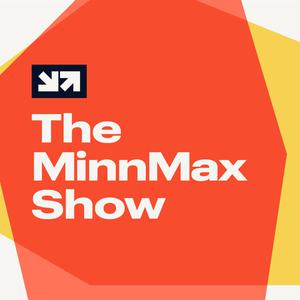 The MinnMax Show
The MinnMax Show
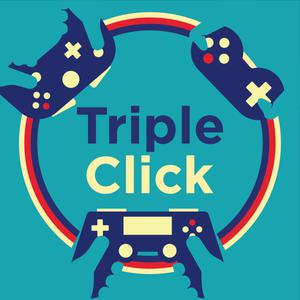 Triple Click
Triple Click
 Giant Bombcast
Giant Bombcast
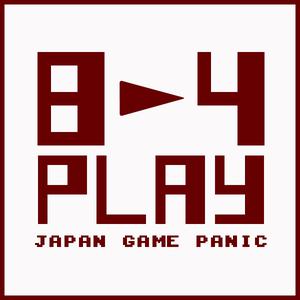 8-4 Play
8-4 Play
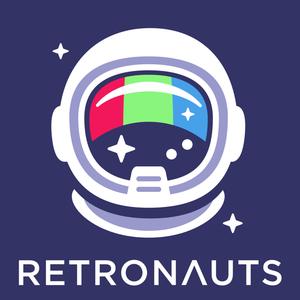 Retronauts
Retronauts
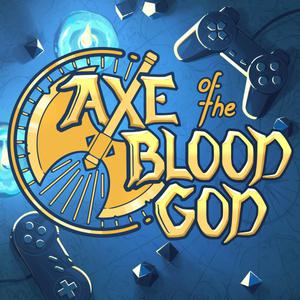 Axe of the Blood God: An RPG Podcast
Axe of the Blood God: An RPG Podcast